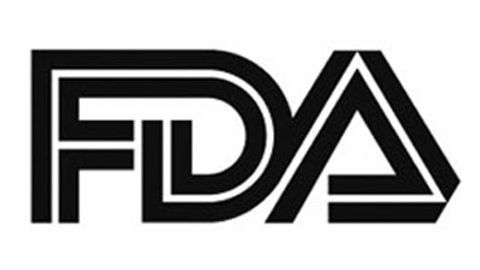FDA Approves Ponatinib for CP-CML
The FDA has approved ponatinib for the treatment of adult patients with chronic-phase chronic myeloid leukemia with resistance or intolerance of at least 2 prior tyrosine kinase inhibitors.

The FDA has approved ponatinib (Iclusig) for the treatment of adult patients with chronic-phase (CP) chronic myeloid leukemia (CML) with resistance or intolerance of at least 2 prior tyrosine kinase inhibitors (TKIs).1
This approval for ponatinib includes a label update for a new response-based dosing regimen. Patients with CP-CML will now be able to receive a daily starting dose of 45 mg that can be reduced to 15 mg upon achieving ≤1% BCR-ABL1. This response-based dose reduction aims to reduce the risk of adverse events without sacrificing efficacy, as was seen in results of the ongoing OPTIC trial.
“CML an be difficult to treat, particularly when patients have experienced resistance or intolerance to 2 or more TKIs. The revised indication allows physicians to consider Iclusig earlier in a course of treatment for [patients with] chronic-phase CML, when it might provide the potential for the greatest benefit," said Jorge Cortes, MD, director of the Georgia Cancer Center, in a statement. “As evidenced by the updated label, response-based dosing of Iclusig may allow patients to achieve the desired benefit that we know Iclusig can provide while reducing the risk for arterial occlusive events, a concern of physicians and, therefore, an important aspect of chronic-phase CML management.”
The supplemental New Drug Application [sNDA] was based on findings from the phase 2 OPTIC trial (NCT02467270) as well as 5-year data from the phase 2 PACE trial (NCT01207440), the results of which were recently presented at the 2020 American Society of Hematology (ASH) Annual Meeting.2
The OPTIC trial enrolled patients with CP-CML whose disease was highly resistant to their most recent TKI and the majority (65%) of the 93 patients included in the study did not achieve a significant response to their most immediate therapy. In this trial, patients received the response-based dosing regimen.
The median age of patients in this study was 46 years and 43% had BCR-ABL1 mutations at baseline, 26% of which were T315I. Forty-five percent of patients had received 3 prior second-generation TKIs.
At 1 year, ≤1% BCR-ABL1 was achieved by 47% of patients and by 52% at 2 years. The 2-year progression-free survival (PFS) rate was 81% and the 2-year overall survival (OS) rate was 93%.
In the PACE trial, 270 patients with resistant or intolerant CP-CML were enrolled and received 45 mg daily ponatinib. The median age of these patients was 61 years and 47% had BCR-ABL1 mutations at baseline, including T315I mutations in 21%. Fifty-seven percent had received 3 prior second-generation TKIs. Patients in the PACE trial were followed for a median of 56.8 months.
At 12 months, ≤1% BCR-ABL1 was achieved by 42% of patients, 46% by 24 months, and 47.1% at 60 months. At 2 years, the PFS rate was 67% and 52% at 5 years. The OS rate at 2 years was 85% and 73% at 5 years.
As many patients had cardiovascular risk factors at baseline, treatment-emergent arterial occlusive events (TE-AOEs) were of special interest in both studies. Grade 3/4 TE-AOEs were reported in 16% of patients in the PACE trial and in 3% of the OPTIC population.
“The FDA’s approval of this sNDA is a major milestone for the CML community. Though chronic-phase CML is often manageable, many patients still experience poor long-term outcomes and could benefit from a third-generation TKI earlier in their treatment journey,” said Teresa Bitetti, president, Global Oncology, Takeda, in a statement. "Iclusig is proven to be effective for many patients with resistant disease, and its use at the critical moment can lead to meaningful outcomes for these patients. We are excited about this updated label and believe it will help address gaps in care for patients with resistant or intolerant chronic-phase CML by optimizing treatment with Iclusig."
Ponatinib was previously approved by the FDA for the treatment of adult patients with CP, accelerated-phase, or blast-phase CML or Philadelphia chromosome–positive (Ph+) acute lymphoblastic leukemia (ALL) for whom no other TKI is indicated. The agent was also approved for the treatment of adult patients with T315I-positive CML or T315I-positive, Ph+ ALL.
References:
1. U.S. FDA Approves Supplemental New Drug Application for Takeda’s ICLUSIG® (ponatinib) for Adult Patients with Resistant or Intolerant Chronic-Phase CML. News release. Takeda Pharmaceutical Company Limited. December 18, 2020. Accessed December 18, 2020. https://yhoo.it/2WsHKTx
2. Kantarijian H, Deininger M, Abruzzese E, et al. Efficacy and safety of ponatinib (PON) in patients with chronic-phase chronic myeloid leukemia (CP-CML) who failed one or more second-generation (2G) tyrosine kinase inhibitors (TKIs): Analyses based on PACE and Optic. Presented at: 2020 ASH Annual Meeting and Exposition; December 5-8, 2020; Virtual. Abstract 647.
First Dose of CD38-Targeting CAR T-Cell Therapy Administered in AML
January 22nd 2025The first patient with relapsed/refractory acute myeloid leukemia has received KJ-C2320, an allogeneic CAR T-cell therapy targeting CD38 and developed using the THANK-uCAR platform, in an investigator-initiated trial in China.
Read More








